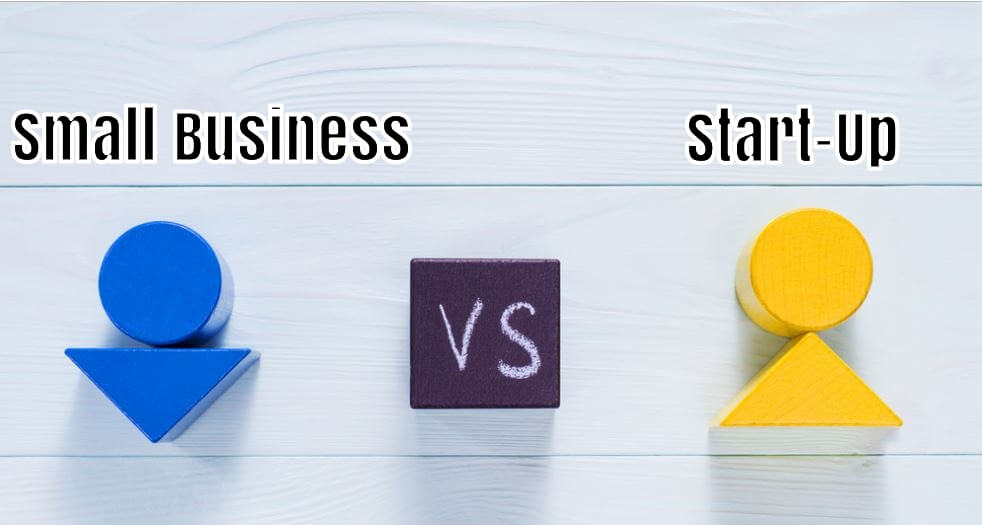A small business is different from start-up and there are due reasons for that. Why not read them and break all your myths that say both are same.
Some, in fact, many people have confusion that small businesses are look-alike of start-up businesses. Their functions are same, structure is same, budget is same, and everything is same. BUT practically in many aspects, they both are the two different sides of a river that can never meet. However, they both match in size as they are small, but there are more reasons that say both are different.
-
The feature of innovation
Small business never claims for any innovation. They are just the new players of something, which is already happening in the market with many other competitors. For instance - travel agency, restaurant, furniture, automobile etc.
On the contrary, the start-ups are the nest of a new idea, concept and culture. That idea needs to be first established and then comes to the result to tell if it has chances to work or not. A start-up business brings improvement and newness in something that already exists. In short, it is a step forward towards betterment. For instance – a piece of new technology equipment that can help you predict an earthquake.
-
Team, management and staff
Small businesses always have limits in this concern as the company works within the set goals of growth. After a certain limit, it usually needs not much extension of team and staff. Of course, the management too gets tailored accordingly.
A start-up business may have a small number of people initially but it is never restricted to any certain limit. With time, it can grow to have a huge figure of employees with a big team. This is the precondition of an enhanced, increased and expanded management. The final result is more staff, directors, investors and etc. etc. etc.
-
Finance/Investment
Small businesses are basically the way to attain self-sufficiency. On initial stages, a small business owner takes funds from savings, family, friends, banks or other finance companies. However, once the business gets the grip on its ground that money needs to be returned. It is like debt on the businessperson.
Start-up businesses work on many projects at the same time to spread their invention. They have investors that expect a good return. The invested money is not a debt but an investment for the future and it needs to be returned with due profits.
Loans to are the frequently used source of funds for both. However, the types of loans are different. You may misinterpret but start-up business loans have their separate identity than the small business loans. Many people take them as same. Both have different application procedures and requirements in the name of formalities.
-
Technology
Small businesses are not much depended on technology, as they are just another spot to find something that already exists in the market. Yes, technological advancements can be the support to enhance their day-to-day procedures but technology is not the core requirement of a small business.
A start-up is technology-driven. As it is the birthplace of something innovative, it cannot exist and survive without technology. It has to be backed with the advancements that can help implement its plans in a better and efficient way.
-
Level of risk
A small business is a personal decision that you take to attain financial self-sufficiency. The risks are calculative as the procedures, budget and investment are all decided. You do not make extra efforts to expand after a certain limit. Perhaps this is why few people run their small business even from home. Yes, the employees and staff are there but with no desperate desire to have an increase in their number.
On the other hand, start-up businesses are more prone to risk as they are always working to extend. In fact, if investors are there, they expect you to work and bring something promising as the output of their money. This demands to explore new ways and opportunities, which may not always act in your favour. At this point where the risk factor starts playing its role.
-
Profit concerns
A small business basically aims to have earnings and the target is to get profit from the very first day. For instance – a restaurant wants to get customers from the first day of its opening. The concern here is to earn urgent profits.
The start-ups are opposite to this. They cannot expect to see the fruit of profit so soon and so easily. They come forward with an idea or product, which first needs to be introduced. This takes time and also the factor of the acceptance of that new thing by the target customer is a big factor. For a start-up business, it may take a long time to earn its first profit.
The points above can help you mark the difference between the start-ups and businesses. If you too have any plans to start a business, this information can back your decision to be perfect.

